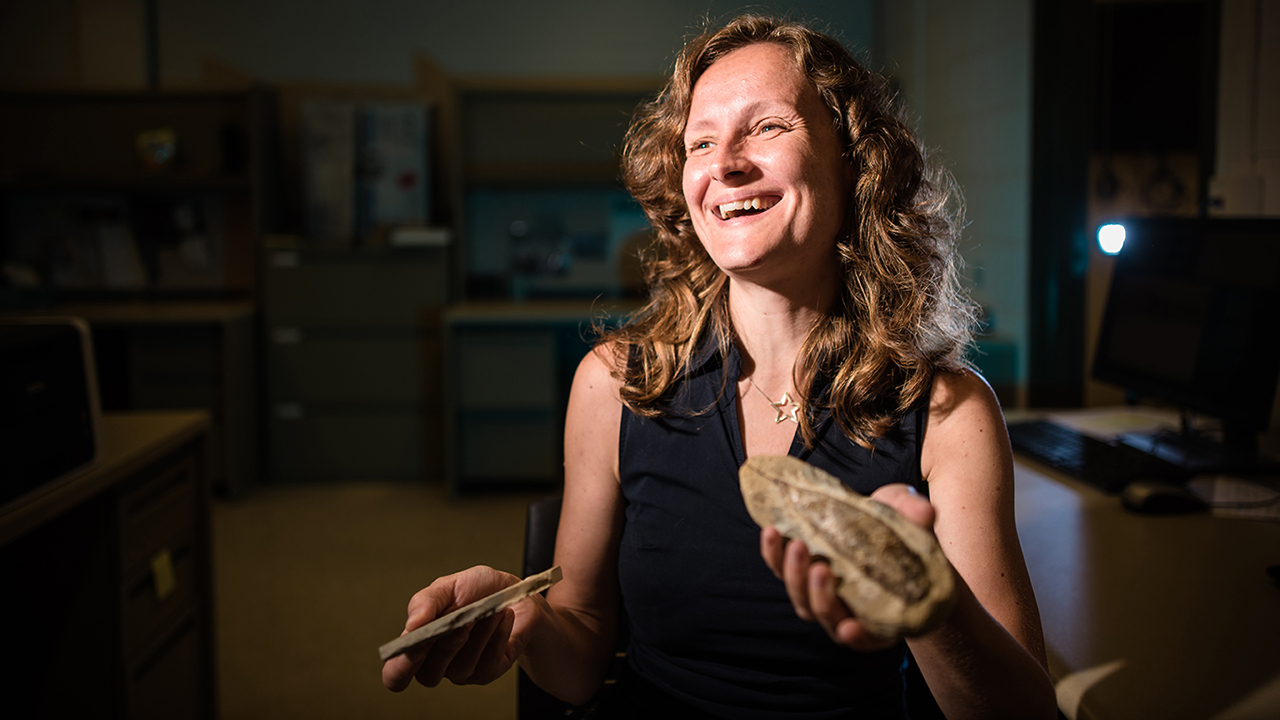Oakland University professor examines evolution of infectious disease with NIH grant

The National Institutes of Health has awarded Fabia Battistuzzi, Ph.D., an assistant professor of Biological Sciences at Oakland University, a $417,286 grant that will allow her to examine the evolution of infectious diseases while laying the groundwork for the development of new drug-based treatments that could help to save thousands of lives.
“Evolutionary trajectories of the past are predictors for the future,” Battistuzzi said. “They can reveal mechanisms of adaptation, such as how drug resistance evolved. With this information, we can start to envision strategies to prevent the evolution of stronger or new pathogens.”
A pathogen is defined as an agent that causes disease or illness to its host, such as an organism or infectious particle capable of producing a disease in another organism. Typically, the term is used to describe an infectious agent such as bacteria, viruses, protozoa or fungi.
“We are using malaria parasites for our studies because they are agents of one of the most deadly, infectious diseases in the world and also because they have some very useful characteristics,” Battistuzzi said.
“For example, different species of this pathogen infect different hosts so there has to be something in the genome that allows them to infect a human instead of a chimp. We think that by looking into their genome complexity and how it has changed through time we could add a piece to the puzzle that we are trying to reconstruct to understand what gives them their unique host preferences.”
By understanding how pathogens evolve, researchers hope to establish the foundation for creating better, more effective drug combinations to combat infectious diseases like malaria, which was linked to approximately 429,000 deaths in 2015.
“There are a number of drugs currently available, but as pathogens evolve and become more resistant to them, the treatment becomes less effective,” Battistuzzi said. “Our goal is to understand how the pathogen’s genome sequence has evolved over time; information that is necessary to develop drugs that are able to overcome those changes.”
While her research is currently focused on the Plasmodium parasites that cause malaria, Battistuzzi said she hopes to expand the study to include other infectious diseases, such as tuberculosis.
“The award from the NIH also provides the means to hire students – graduate and undergraduate – to carry out the work proposed,” Battistuzzi said. “This project will be a new opportunity for students to learn how bioinformatics integrates with the biomedical field and allow us to train them in the latest techniques used by clinical researchers.”
The award is for a three-year period.
“Competition for these types of awards is fierce; only about 15 percent of applications are awarded,” said David Stone, Ph.D, chief research officer for Oakland University. “For Dr. Battistuzzi, a junior faculty member, to be recognized by the NIH for this award speaks to the quality of her ideas, her strength as a scientist, and to the potential impact of her work.
“And her involvement of both graduate and undergraduate students in her research speaks to Oakland University's long-standing commitments to research-led teaching and hands-on education.”
